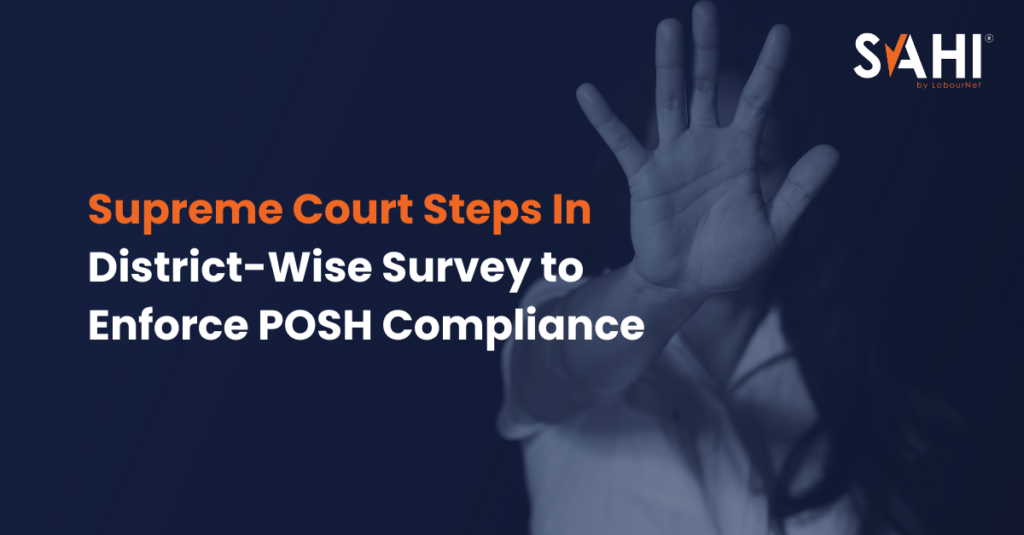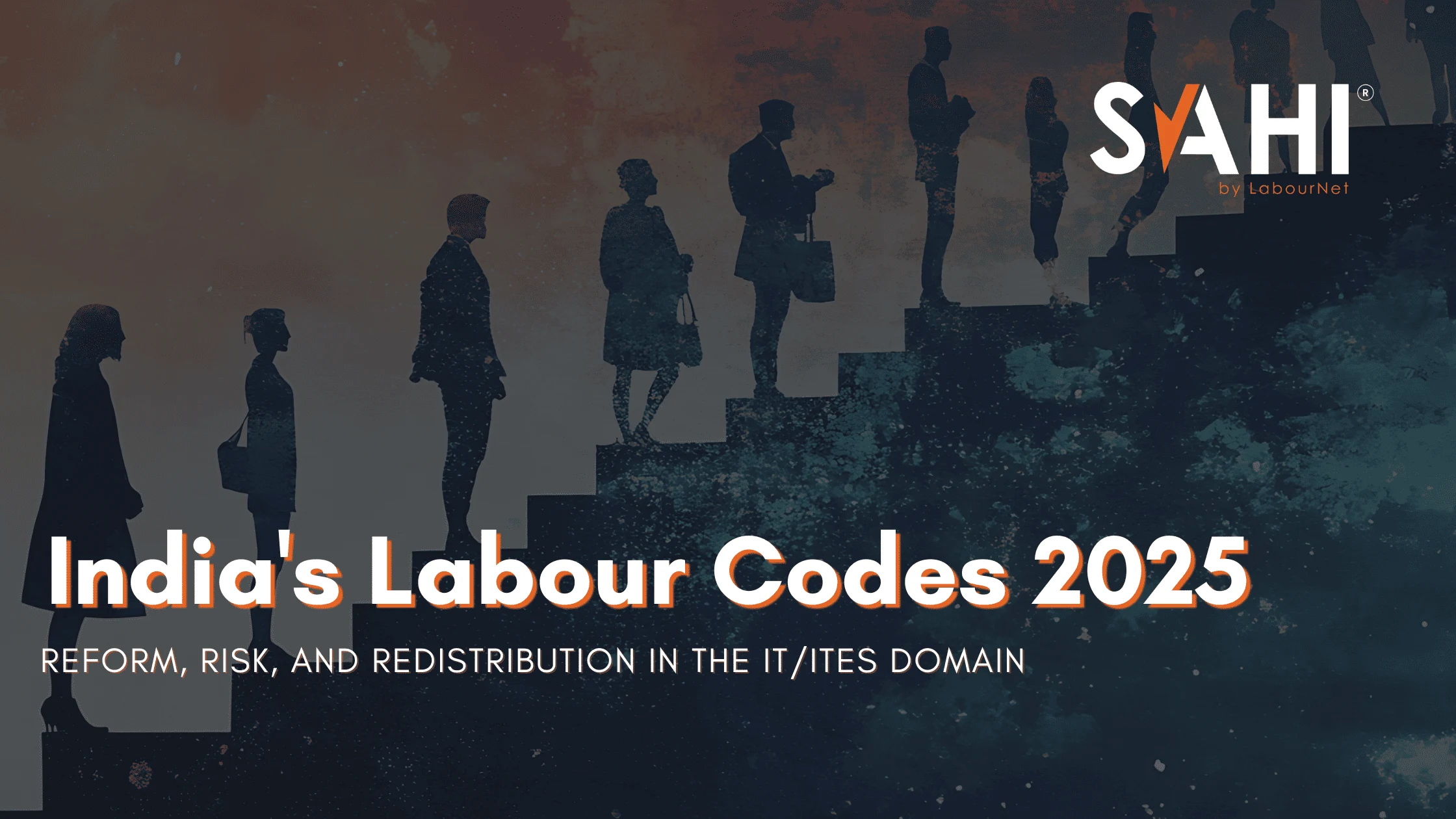The Supreme Court Steps In: District-Wise Survey to Enforce POSH Compliance
For over a decade, the POSH Act, 2013 (Prevention of Sexual Harassment of Women at Workplace), has been the backbone of India’s efforts to create safer workplaces. Yet, the gap between law and practice remains wide.
Despite clear mandates, most notably the requirement for every employer to set up an Internal Complaints Committee (ICC), implementation has been inconsistent, leaving many employees without accessible redressal mechanisms.
In August 2025, the Supreme Court of India made a more decisive move to bridge this gap. In a directive issued by Justices B.V. Nagarathna and K.V. Viswanathan, the Court has ordered a district-wise survey across the country to verify whether employers in both public and private sectors have complied with the POSH Act’s requirements.
Here’s What the Supreme Court Ordered
- District-Level Surveys: District Labour Commissioners, along with State Chief Labour Commissioners, have been tasked with conducting surveys in every district. Their primary responsibility is to check whether ICCs have been established in workplaces as mandated under Section 4 of the Act.
- Six-Week Deadline: The surveys must be completed within six weeks from August 12, 2025, unless already been conducted.
- Accountability Measures: Employers who fail to comply could face stringent consequences, including the non-renewal of licenses, thus making this a step that elevates POSH compliance from an HR requirement to a survival factor for businesses.
- Public Data & Monitoring: Survey findings must be compiled and submitted to the Court, Amicus Curiae, and State counsels. This ensures continued judicial monitoring and public accountability.
The Andaman & Nicobar Benchmark
Interestingly, among all States and Union Territories, only the Andaman & Nicobar Islands had fully completed the district-wise survey, covering even private institutions. This sets a benchmark for compliance and demonstrates that systematic enforcement is possible with coordinated effort.
Why This Matters
For years, compliance with the POSH Act has been reduced to a checkbox—forming ICCs in name, often without proper functioning or awareness among employees. By directing a district-wise audit, the Supreme Court has shifted the conversation:
- From policy to practice, making compliance measurable through ground-level data.
- From voluntary compliance to enforced accountability, tying non-compliance to business operations like licensing.
- From symbolism to systemic change, thus ensuring that every workplace, regardless of size or sector, has mechanisms to address sexual harassment complaints.
What Employers Must Do Now
With this order, the message is clear: compliance is not optional. Employers should act immediately to:
- Constitute Internal Complaints Committees at every office/unit with more than 10 employees.
- Train ICC members on procedures, sensitivity, and timelines under the Act.
- Engage with Labour Departments to ensure alignment with survey requirements.
Document compliance—maintain records, meeting minutes, and awareness programs. - Create awareness among employees about their rights and the existence of ICCs.
A Turning Point for Workplace Safety
The Supreme Court’s directive, part of its ongoing monitoring since the Aureliano Fernandes v. State of Goa case, signals a turning point. For the first time, POSH compliance is being tracked, enforced, and tied to administrative levers.
This move has the potential to create not just safer workplaces, but also a culture where gender equity and respect become non-negotiable. Employers, HR leaders, and compliance officers would do well to treat this not as a regulatory burden, but as an opportunity to build trust, safety, and inclusion into the very fabric of their organisations.
The Supreme Court’s latest directive is more than a legal update—it’s a call to action. As the surveys unfold over the next few weeks, the data will reveal how seriously India Inc. takes its responsibility towards workplace safety. The time for token compliance is over; the era of accountability has begun.



